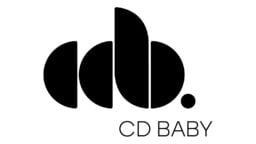Since Switzerland-headquartered Utopia Music launched in 2016, it has turned heads with its aggressive acquisitions of businesses in the music space.
However, over the past six months, as the company has rolled back some of those purchases and implemented successive rounds of layoffs, many have looked at its acquisitions and asked: What is it that Utopia Music is trying to do?
The company has presented itself as a Big Data firm for music, developing a proprietary music monitoring platform sometimes referred to as the Utopia Open Platform. The technology keeps track of songs played on radio stations and other broadcasters around the world, as well as identifying plays on streaming platforms, essentially attempting to be a one-stop-shop for music measurement.
It has also sought to establish itself as a music services and royalty collection platform, working under the motto “fair pay for every play.”
One thing that has been clear for some time is that Utopia built itself into what it is through a series of acquisitions.
In 2021, it bought Quincy Jones-backed AI company Musimap, which uses proprietary AI technology to develop emotional metadata about music for clients. The tech can be used to create playlists that match with personality profiles, or that reflect certain genres or moods, or to search for music.
That was followed soon by the acquisition of Lyric Financial, a Nashville-based firm that offers musicians advances on the royalties they are owed. (As will become clear later on, this was a key purchase for Utopia.)
At that point, Utopia’s acquisition spree was just getting started. The company soon bought US-based music industry directory ROSTR, and Austria-based music data analytics platform ForTunes. Utopia rolled the two companies together to become its new Creator Services Business Unit, which it said would “provide creators with a comprehensive analytics platform, an industry directory and other marketing tools.”
It went on to buy Liverpool-based music publisher and publishing administrator Sentric Music Group, which Utopia converted into its new Royalty Management Services unit. Little more than a month later, it acquired UK-based Absolute Label Services, a distributor and service provider to indie artists and labels.
Around this time, the company raised €300 million in a Series C funding round that implied a market capitalization of around €2.5 billion – making the company a double unicorn, and one of the biggest success stories in the music business over the past decade.
In early 2022, Utopia went in an unexpected direction – it got into the physical music media game, with the acquisition of UK-based distributor Proper Music, giving the company a foothold in physical and digital music distribution.
Little more than a year later, it expanded its holdings in the physical music world with the purchase of Cinram Novum, a UK-based warehouse, fulfillment and distribution company. And most recently, the company signed a £100-million deal with logistics firm DP World to provide warehousing and logistics for physical media in the UK.
But in late 2022, things began to go sideways. In November of that year, Utopia announced a round of layoffs that reportedly impacted about 20% of the company’s staff, which would have been around 1,200 people at that point. Less than six months later, the company slashed another 15% of its workforce.
What’s more, Utopia seemed to have developed buyer’s remorse about some of its purchases during that multi-year shopping spree. It sold its music industry directory and data platform ROSTR back to the company’s founders, following that up with a sale of music publisher Sentric to France-headquartered Believe.
Amid all this, reports swirled of unpaid tax debts in Sweden and employees going without pay.
So what happened to this musical unicorn, and where is it going next?
In a rare interview on the Dealmakers podcast with Alejandro Cremades, Utopia founder Mattias Hjelmstedt dropped some hints as to what has been happening with the company, and where it sees itself going next.
Hjelmstedt was brought back into the CEO position earlier this year, after Markku Mäkeläinen departed the role in January.
MBW listened in on Hjelmstedt’s podcast interview; here are some of the highlights of what he had to say.
1. The financial world is no longer rewarding “hypergrowth” companies like Utopia
It’s no secret that the financial world has been turned upside down over the past 18 months, as central banks have begun raising interest rates in a fight against inflation that has proven longer-lasting than most people had expected.
In this environment, tech companies – including music-related tech companies – have found it increasingly difficult to raise money.
“We went through that hypergrowth. We went from 40 to 1,100 people. We recruited a team that was specialized [and came] from some of the largest growth companies in the world. And that worked fantastically well up until the world didn’t reward it anymore.”
Mattias Hjelmstedt, Utopia Music
“The last 20 years, and especially the last 10, [have] been extremely focused on hypergrowth,” Hjelmstedt said. “Take a lot of the large companies that exist today. They went through these hypergrowth scenarios which massively increased the value of them. Not always from a profitability standpoint, not always from a revenue standpoint – just being able to capture market [share] by growth.
“This has been how the world of financing has looked [for] the last 20 years, and a year ago that all came to a stop… We’re [caught up] in a wake of companies that are failing because of it. You’ve even seen banks being disrupted by it and and it’s not going to stop anytime soon.”
Businesses now have to reorient themselves, and look at sustainability and profitability, Hjelmstedt said.
“Experience-wise, we went through that hypergrowth,” he continued. “We went from 40 to 1,100 people. We recruited a team that was specialized [and came] from some of the largest growth companies in the world. And that worked fantastically well up until the world didn’t reward it anymore. We were able to raise capital every single time at high multiples and we were also able to get oversubscribed [in our funding rounds].”
Now the company is feeling the friction of a world where capital is harder to come by. But even the recent restructuring “requires money, and that’s been… not the easiest thing to do, even for us, a unicorn-level company,” Hjelmsted noted.
2. Utopia’s downsizing is working, and has resulted in a 75% reduction in cash burn
If there’s good news to be found in Utopia’s half a year of sell-offs and layoffs, it’s that the company has been able to get a grip on its financial situation, Hjelmstedt asserted.
“We’ve gone through the lifecycles that… you see in the world of technology today. We’ve had downsizing. We’ve had to look at operations. How many offices do we have? What is the cost? How do we operate? How do we [do] cost controls?” Hjelmstedt said. “So in about six months we’ve been able to lower our [cash] burn [by] about 75% and we’re still increasing our revenue this year [by] about 80%.”
“It’s been a tough but interesting journey, but also kind of a sad one because there’s been so many great people [who were let go] but [in] the end, the vision of making the world of music better is too important to not take all the decisions to get there.”
Mattias Hjelmstedt, Utopia Music
Nonetheless, Hjelmstedt said the layoffs were hard on the company.
“We created a company with very high human values. We [couldn’t] name [ourselves] Utopia without it. And then actually having to let go [of] people that are there for the vision, to be able to get there,” he said.
“It’s been a tough but interesting journey, but also kind of a sad one because there’s been so many great people [who were let go] but [in] the end, the vision of making the world of music better is too important to not take all the decisions to get there.”
3. Utopia wants to be the “operating system” for the music industry
So where does Utopia see itself going from here? Hjelmstedt paints a picture of a business that is planting roots in seemingly every aspect of the music industry, physical media included.
“We do everything, [even] actual distribution of music,” he said. He claimed further: “We even… do about 98% of all deliveries of physical vinyls in the UK for instance, so in the UK every single [vinyl] record you… buy has been delivered by Utopia.”
Yet his vision of a data company that integrates global measurement of music plays and collection of royalties for creators, making the industry more efficient, remains intact.
“We work with actual [royalty collection] societies in the different territories to upgrade them and make them modern, so… it’s almost like an operating system for an industry,” he said.
The idea is to create systems that save time, because “when you save time you can actually spend more of that time to create more. More… music comes out and people can listen to more music, which is beneficial for the whole industry.”
4. Financing for musicians and rights holders is a major part of Utopia’s business model
One thing Hjelmstedt stressed in the interview is the fintech aspect of Utopia’s business model in an answer to a candid question from Alejandro Cremades: “How do you guys make money?
“We do the actual collection [of royalties] and distribution of money. We even have advances so when – this going to sound insane, but if you’re, for instance, an American artist and you [got airplay] on radio in Germany, it can take two years for you to get paid,” Hjelmsted said.
“And even if you’re a songwriter and you uploaded your music to a distribution platform, to Spotify, [on] Spotify the average payout time to the system is nine months, so it’s a lot of of legacy in there. … So we can recognize [that a song got] play and we can actually advance the money to the [rights holders]. You can get the money tomorrow instead of waiting for years to get the capital, which means that you are again [in] control over your destiny… instead of selling your assets, you can actually have them and control them and work with them.”
Utopia’s 2021 acquisition of Lyric Financial seems to be a key move in developing this aspect of the company’s business. The business specializes in royalty advances to music rights holders, and in its 2021 tie-up with Utopia, Lyric Financial said it gained “competitive advantage, strength, and optimized market positioning in the rapidly growing music technology market that enables faster payments for creator rights.”
Hjelmstedt capped off the interview with some advice born of Utopia’s hard-fought experiences of recent months.
“The biggest… advice I can give to everyone [is] take decisions. Operate. Don’t hesitate. Go forward always, because that’s what makes a company successful, and when when we talk about valuations, one of the best folk [sayings] I’ve ever heard is, The valuation of [a company is] usually equal to the amount of problems you solved to get there. And I think that’s the life of an entrepreneur.”Music Business Worldwide




